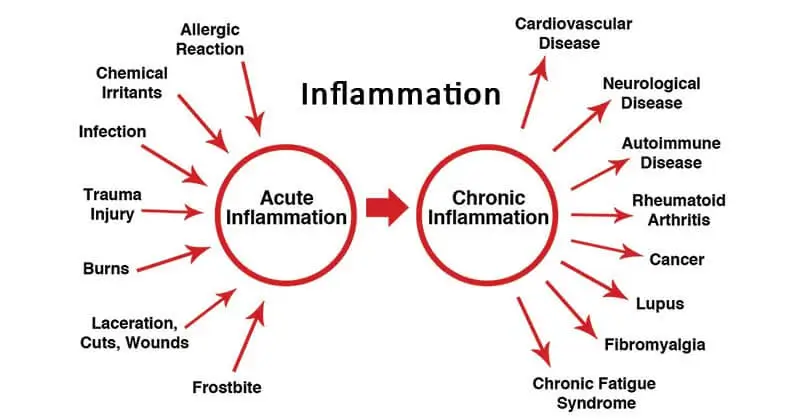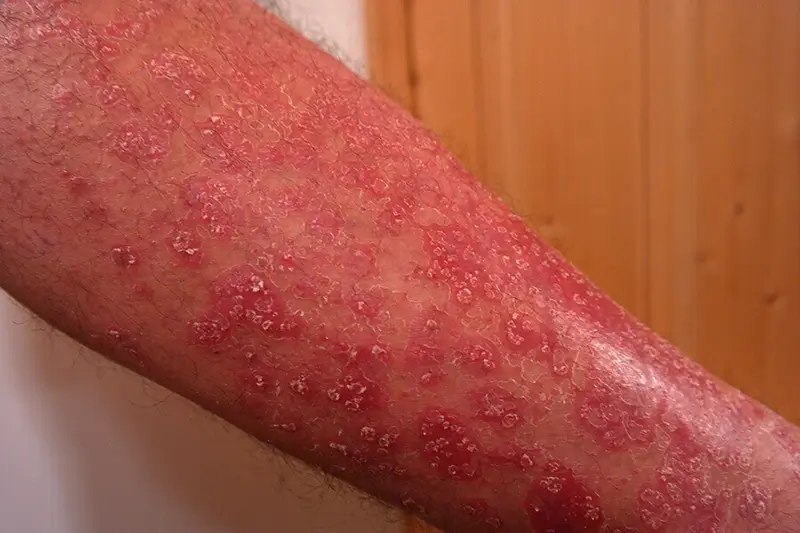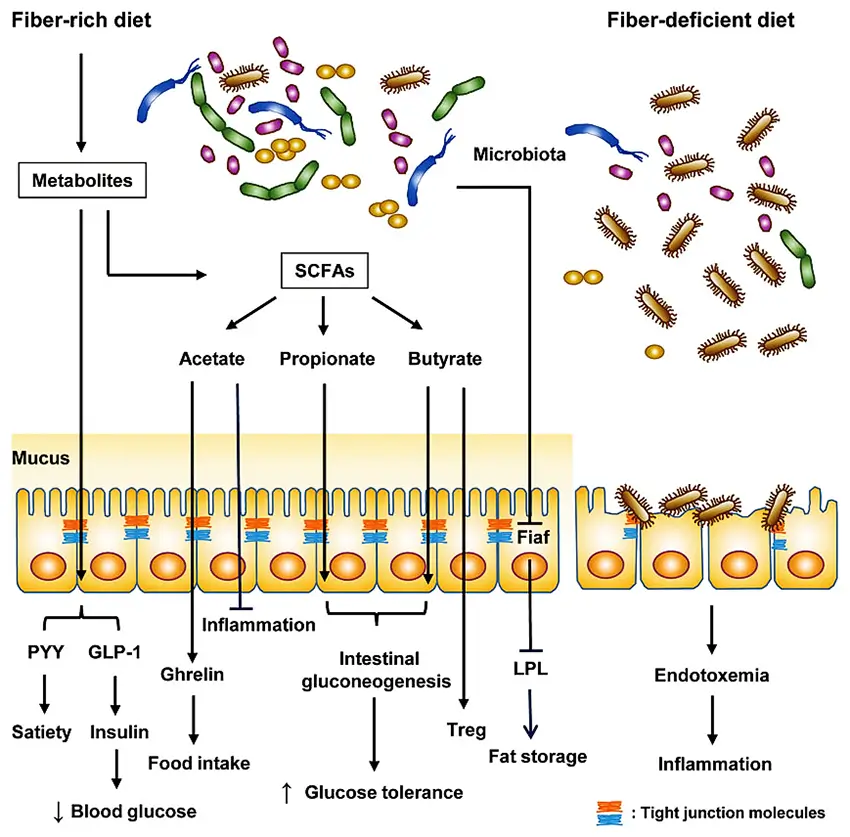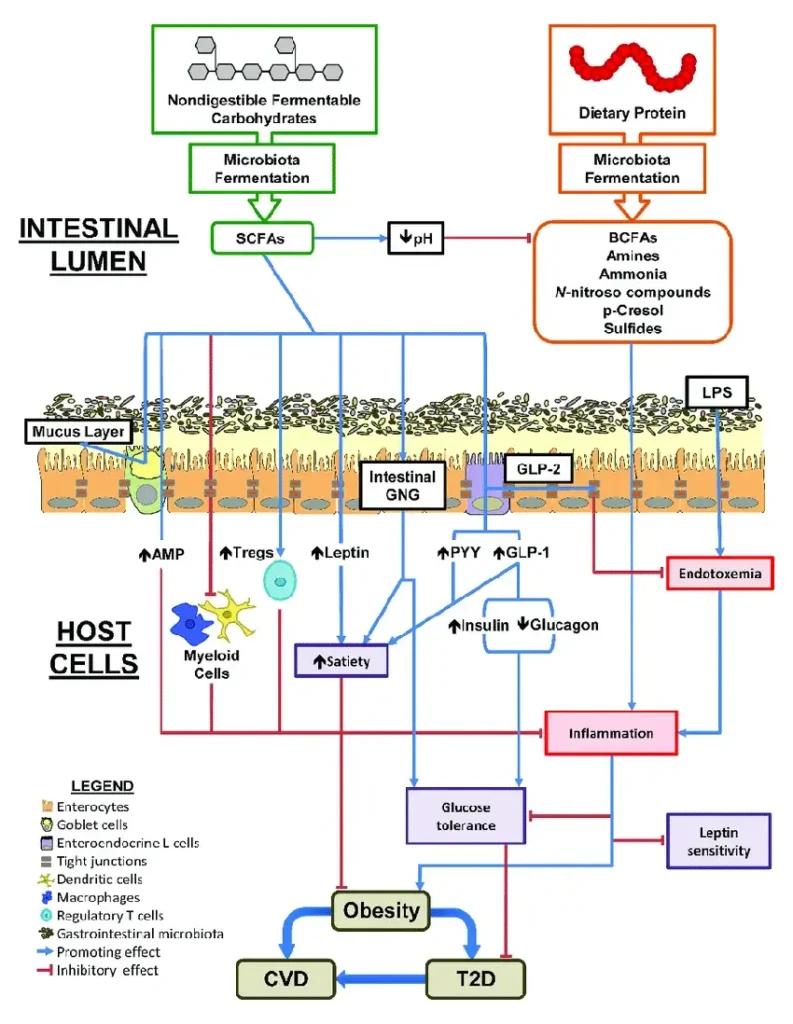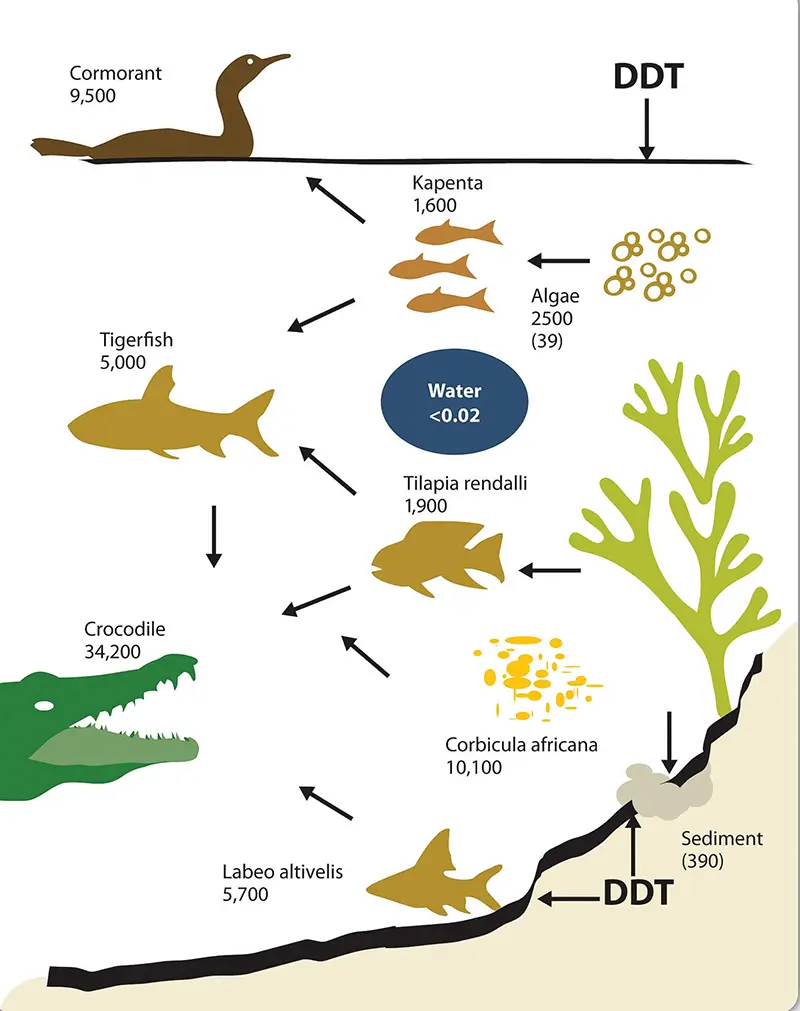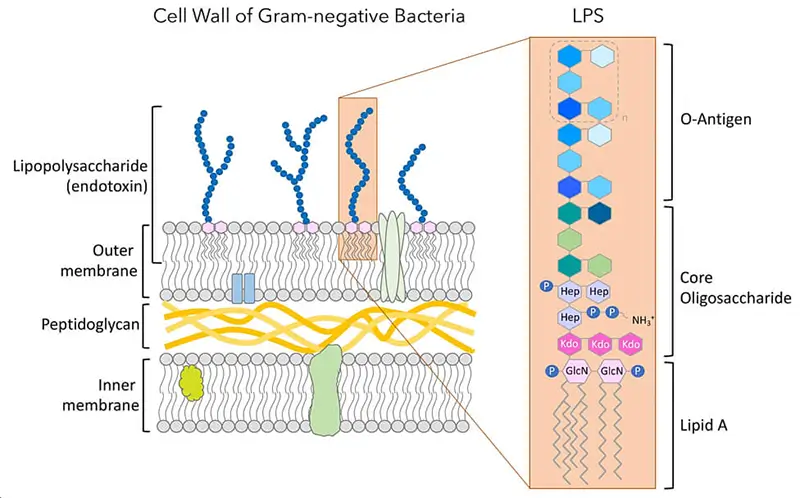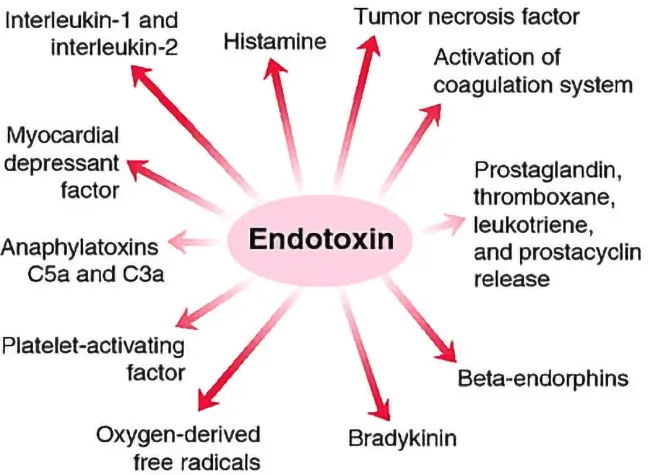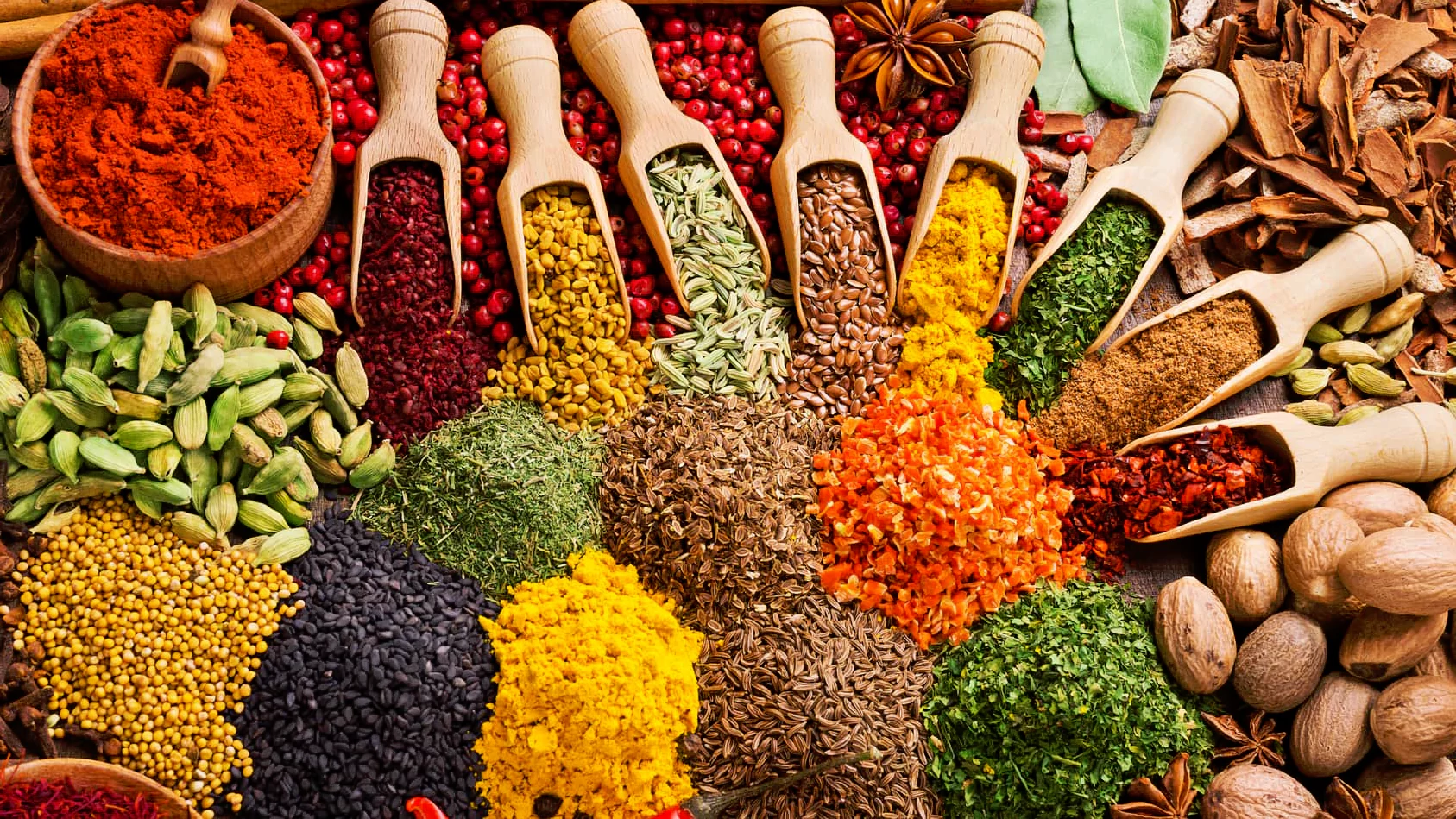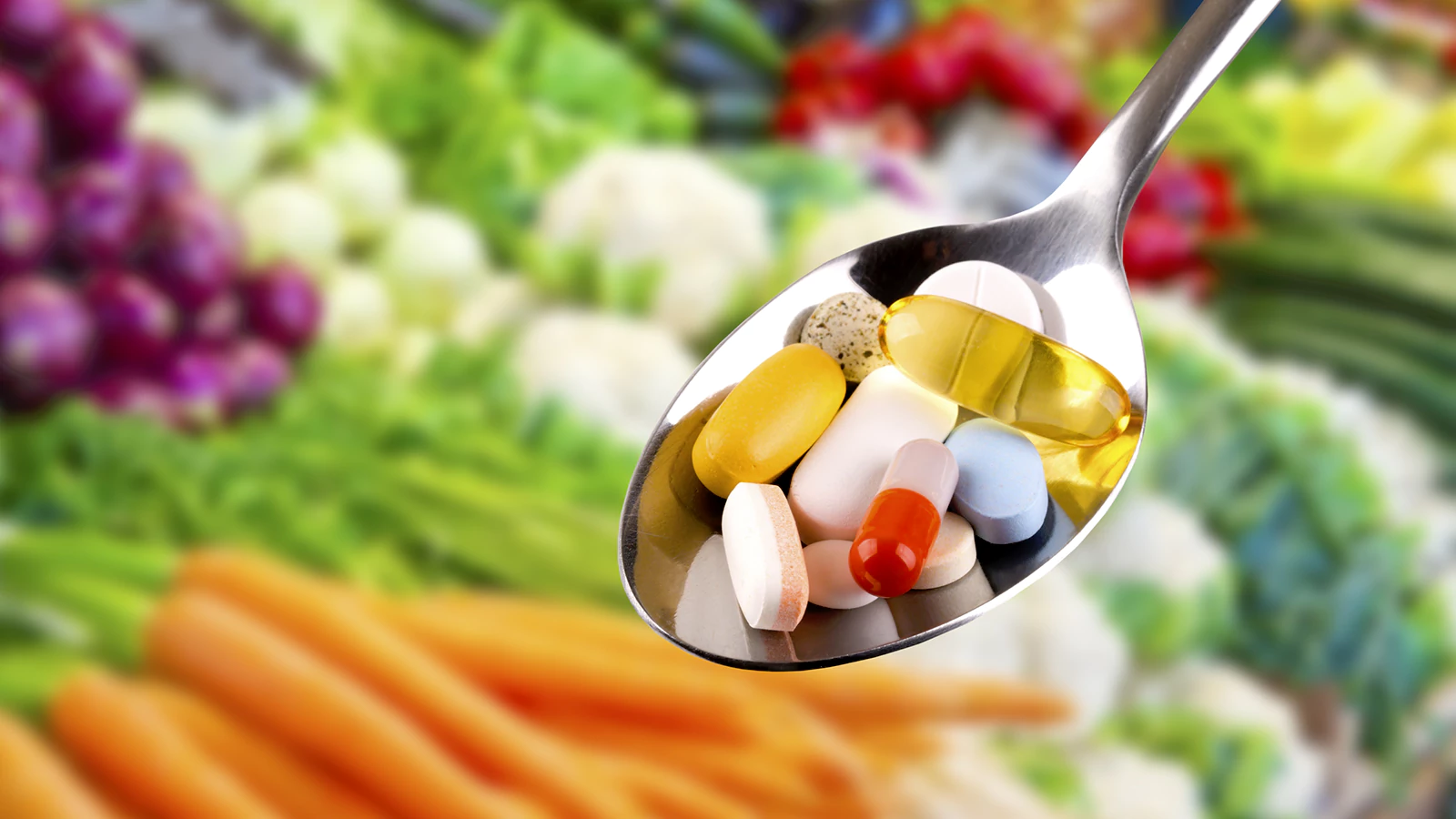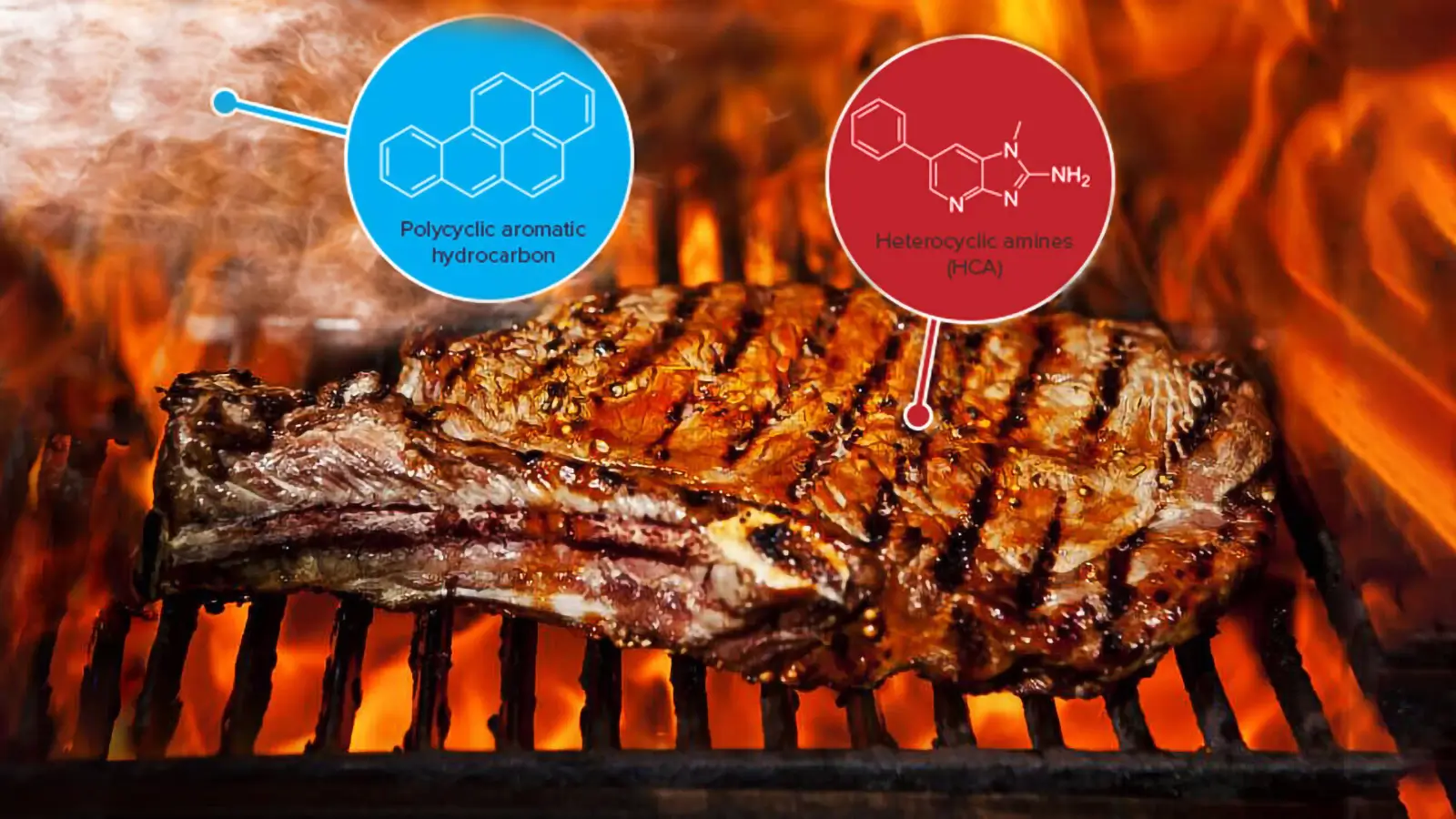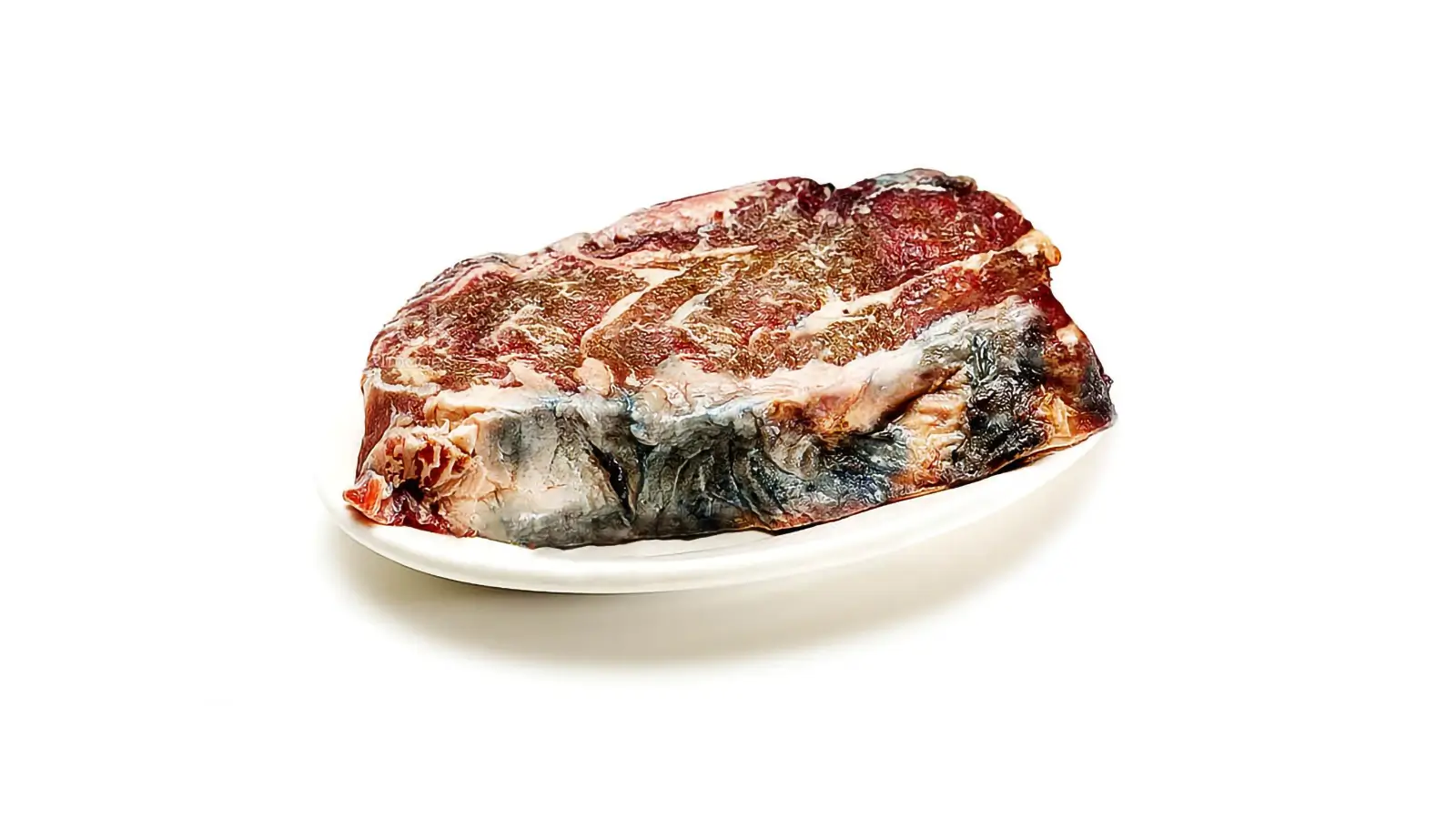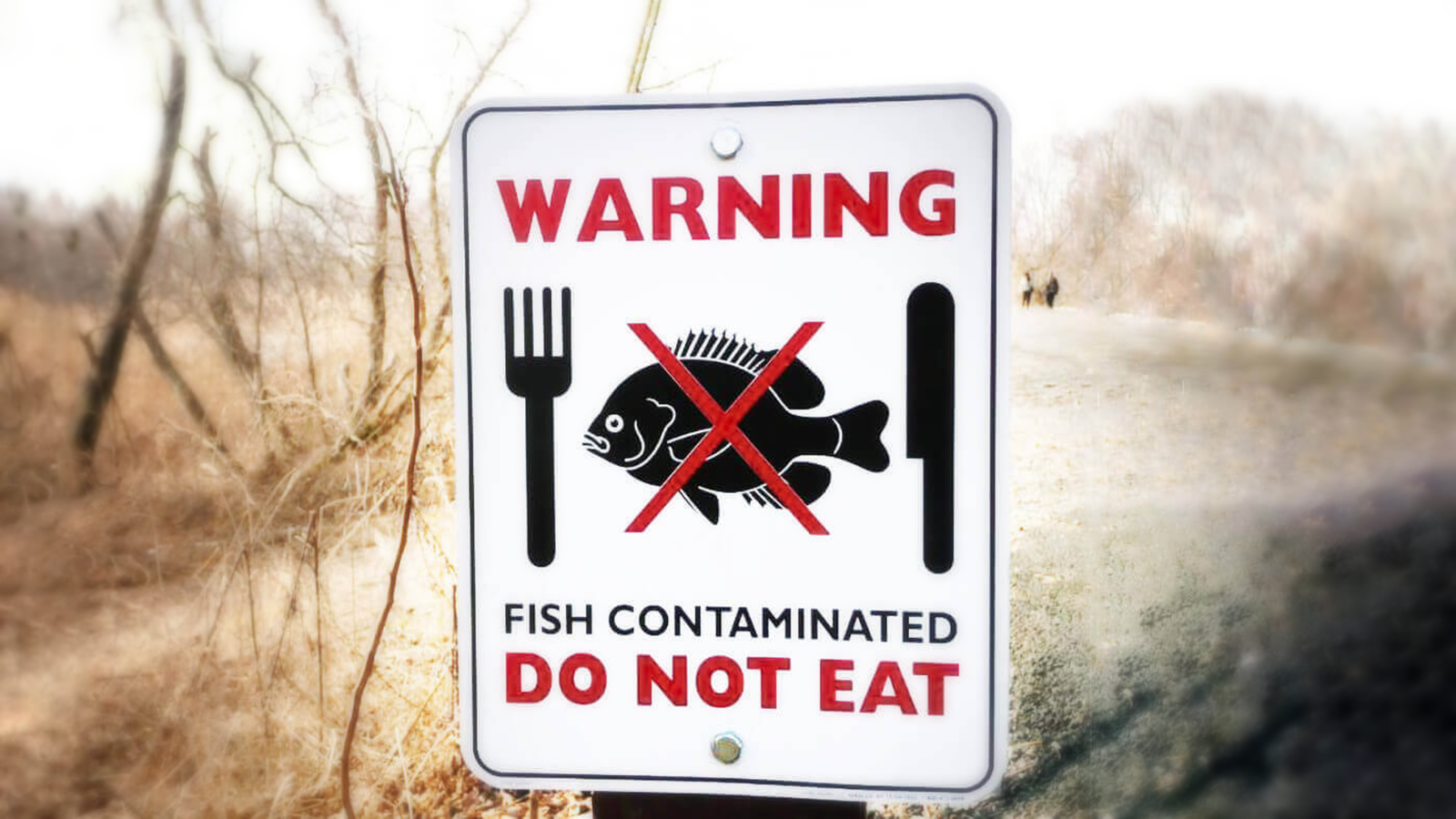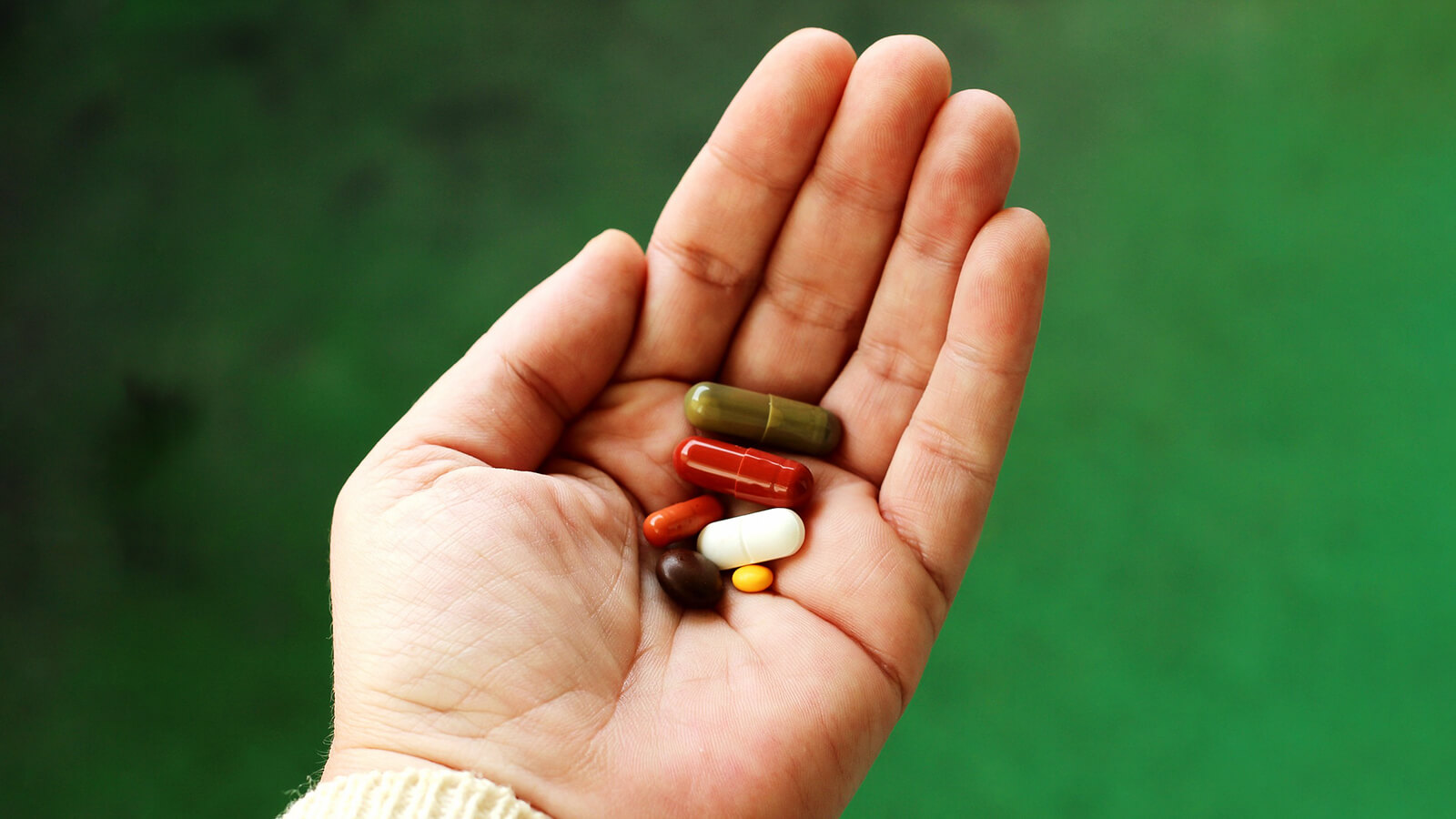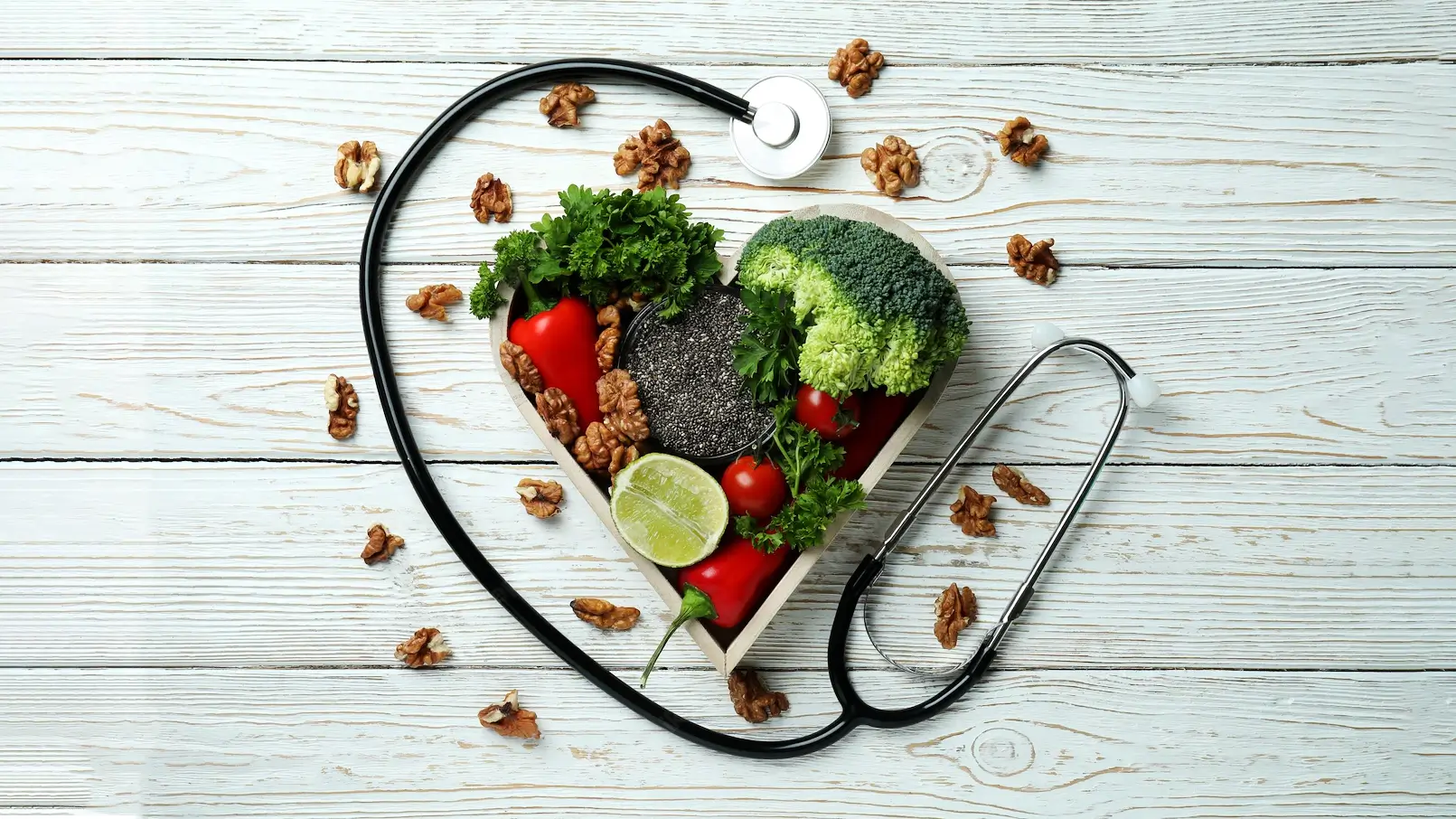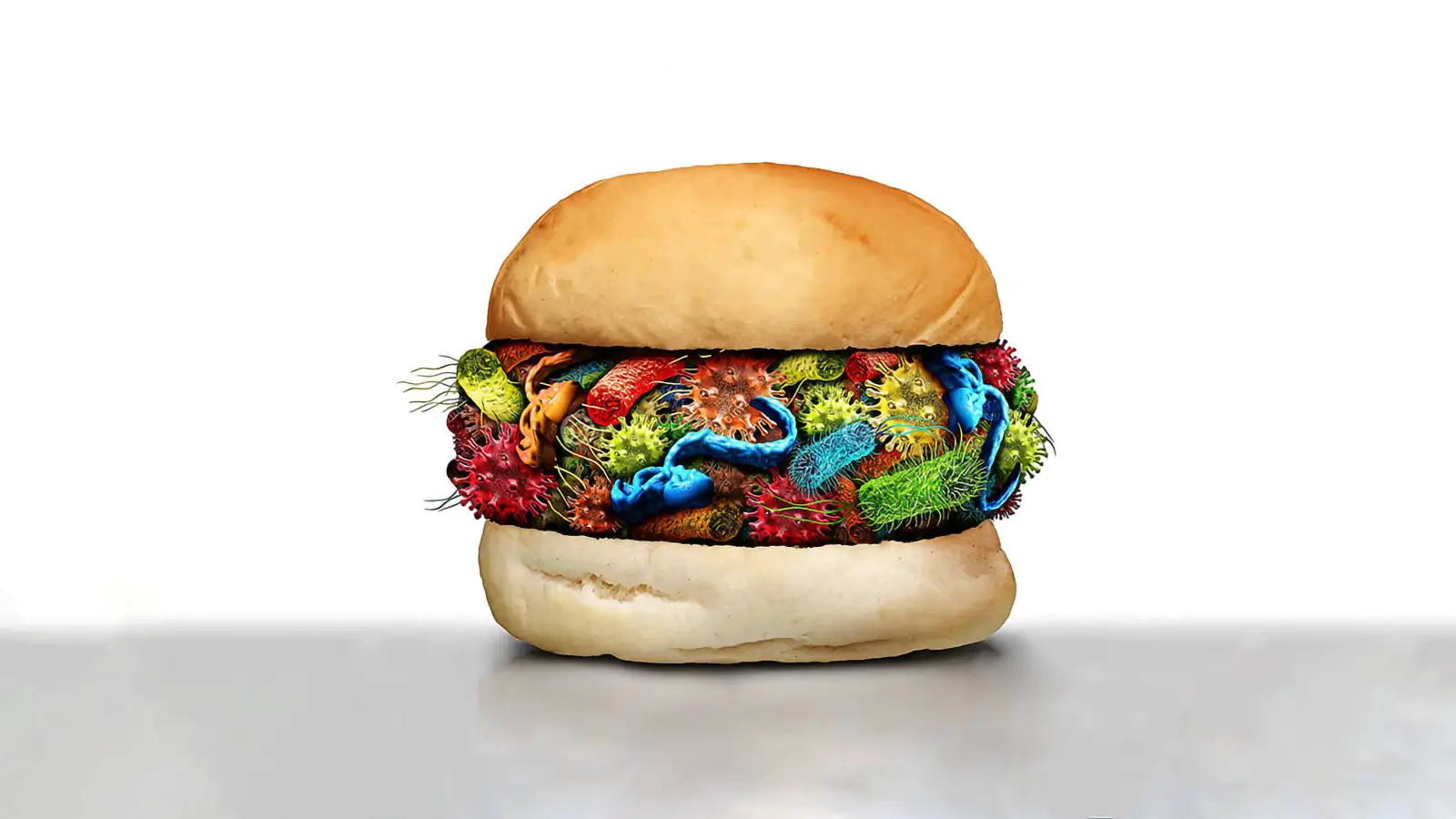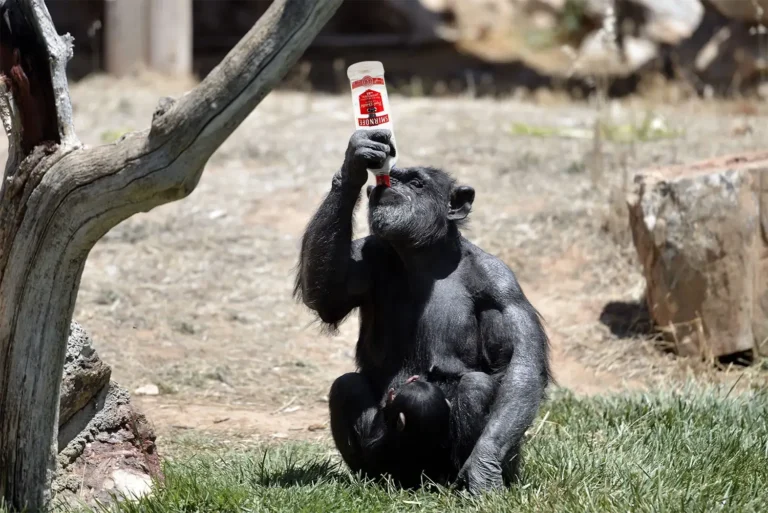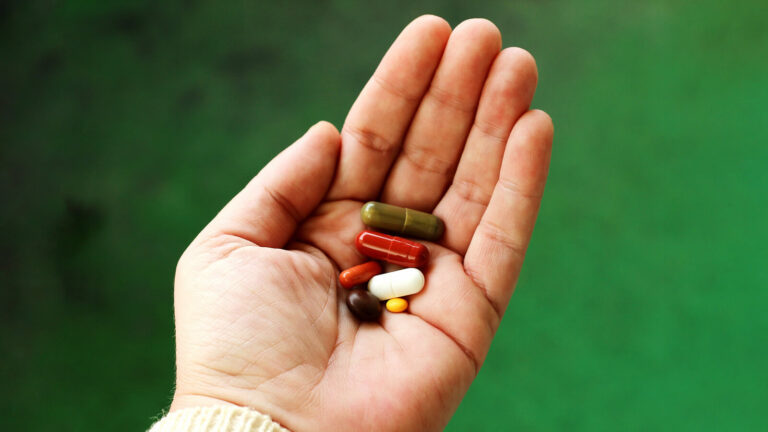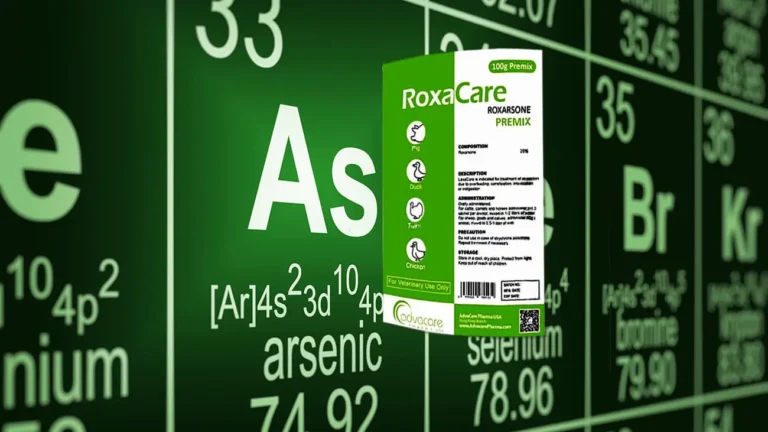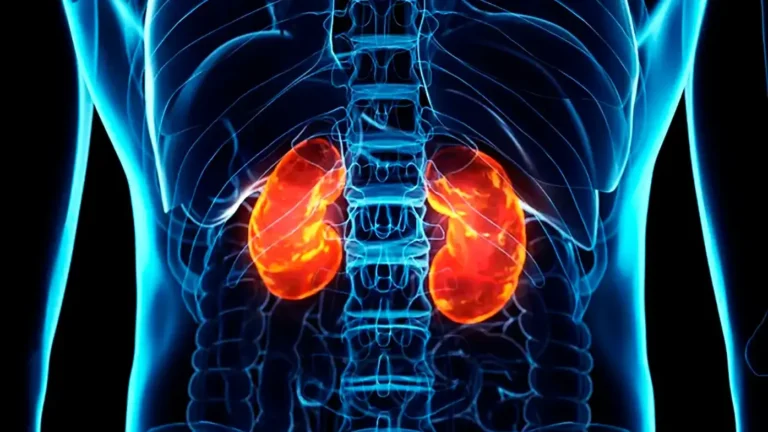La Inflamación y la Dieta- Argumento Vegana
Hemos evolucionado para recibir una ráfaga de antioxidantes protectoras cuando comemos pero no están presentes en la carne. La inflamación y la dieta tienen un alto nivel de correlación.
Milos Pokimica
Escrito por: Milos Pokimica
Revisado Médicamente Por: Dr. Xiùying Wáng, M.D.
Actualizado el 9 de junio de 2023When our DNA gets damaged no matter what is the cause (toxins, free radicals, viruses, etc.), the visible effect would be an increase in inflammation. Inflammation response is our body’s defensive mechanism. It is not the same as infection and people usually mix these two together. Pathogens will create inflammation as a defensive response from our body’s immune system but they are not the source of inflammation. Inflammation and diet are also correlated. The source of inflammation is DNA damage. Anything that damages our cells is pro-inflammatory including pathogens, free radicals, and toxic substances of a different kinds. If our immune system malfunctions and starts to attack our own cells the visible effect will be an increase in inflammation.
All of us have some level of normal inflammation all the time and suffer from DNA damage all the time. That is the reason why medical doctors talk about markers of inflammation in the body. They have a range that is considered to be normal. There is oxidative damage that is a result of natural cells’ metabolism of energy, there is a low level of pathogens that our immune system deals with on a daily basis and there are always some toxins that are present in our body. This “normal” inflammation will cause a disease that we know as the aging process.
Además, todos podemos tener una inflamación aguda (de corta duración) por diferentes motivos. Por ejemplo, podemos contraer una infección bacteriana. Nos causaría dolor y otros síntomas y seríamos conscientes de ello.
Pero existe otro tipo de inflamación. El tipo que combina ambas. Y esa es la inflamación crónica (permanente) por encima de los niveles normalmente aceptados que podría estar presente sin dolor o efectos visibles durante un largo periodo de tiempo. Seguiría ahí y tendríamos un aumento en el daño de nuestro ADN y como resultado, en la etapa final, tendríamos alguna enfermedad como consecuencia. Por ejemplo, podríamos contraer cáncer o simplemente aumentar nuestro ritmo de envejecimiento.s
Cuanto mayor sea la inflamación general, mayor será el daño en el ADN, más corta será la vida y mayor la probabilidad de enfermedad. Lo ideal sería que no tuviéramos inflamación ni daños en el ADN y que viviéramos para siempre, pero eso no es posible debido al metabolismo celular normal.
Casi todas las enfermedades crónicas están asociadas a la inflamación crónica, desde el cáncer a las enfermedades autoinmunes, la diabetes y las enfermedades cardiovasculares, y básicamente la mayoría de las enfermedades que se han probado.
That is because, and people don’t understand this, inflammation is not a disease by itself. It is just a defensive reaction of the body. It is a biomarker that tells us how much destruction of our DNA we have inside us. It is an immune system response that could be lowered artificially with anti-inflammatory medications. Lowering inflammation artificially if we don’t deal with autoimmune diseases and malfunctioning of the immune system will just make things worse. It would be the same thing as lowering body temperature when we have the flu. Would that make a flu virus go away or would just weaken our immune system’s defensive mechanism?
Cuando tratamos la inflamación crónica tenemos que eliminar las causas de raíz de ese daño en el ADN, no sólo la inflamación.
La forma en que la dieta puede causar un aumento de la inflamación se debe a dos razones principales.
- De por sí es proinflamatorio, lo que significa que tiene toxinas, sustancias químicas, bacterias muertas y mutágenos.
- Si no provoca un pico de inflamación por sí mismo, tampoco evita la inflamación.
Los productos de origen animal provocarán ambos efectos.
Una gran parte, alrededor del 70%, de nuestro sistema inmunitario se encuentra en el intestino y en la mayoría de los ganglios linfáticos. Hay miles de tipos diferentes de bacterias en nuestros intestinos, pero hay dos grandes tipos básicos. Los dos grandes grupos son diferentes entre sí. Las probióticas metabolizan la fibra y viven en simbiosis con nuestro organismo y las que descomponen la carne. Si las bacterias se alimentan de carne, en cierto sentido nuestro tejido también es un trozo de carne. A diferencia de los carnívoros, hemos evolucionado durante millones de años de evolución para comer alimentos vegetales enteros ricos en fibra. Cuando comemos fibra alimentamos a las bacterias probióticas y éstas se multiplican.
No son tan agresivas para nuestro organismo. El sistema inmunitario tendrá más facilidad para combatirlas, no segregarán endotoxinas peligrosas al torrente sanguíneo y habrá menos daños en general y disminuirá la inflamación (Awika et al., 2018), (Telle-Hansen et al., 2018). El resultado del consumo de fibra es un aumento de la salud y una disminución de la inflamación, mientras que los productos animales alimentarán a las bacterias que putrefactan la carne y aumentarán la inflamación. Comer carne y proteínas animales creará un mayor nivel de inflamación en el intestino sólo por ese mecanismo.
También hay algunas toxinas y contaminantes que están presentes en la carne debido a la bioacumulación en la cadena alimentaria. Todas las toxinas presentes en el medio ambiente, sean o no de origen humano, resistentes al calor y químicamente estables, se bioacumulan. Los organismos son como filtros. Filtran todo lo que existe, tanto lo bueno como lo malo. La situación no sería tan mala, pero hay un proceso más llamado biomagnificación. Todos conocemos la acumulación de mercurio en el atún (Wu et al., 2019), microplásticos (Barboza et al.,2018), o pesticidas (Zennegg, 2018). Hay cientos de miles de diferentes contaminantes ambientales persistentes conocidos hasta ahora que se acumulan en los tejidos. Si tenemos en cuenta la cadena alimentaria, la acumulación de toxinas es cientos de veces peor a medida que ascendemos (Gasull et al.,2011). Lo que ocurre es que cuando un pez grande se come a un pez pequeño, todas sus toxinas pasan al pez grande. Comer alimentos vegetales es esencialmente la única manera de reducir nuestra carga tóxica, además de las intervenciones de estilo de vida como dejar de fumar y evitar el alcohol y otras sustancias tóxicas. Más del 70% de todos los pesticidas que obtenemos de una dieta, y la gente no lo entiende, se ingieren a través del consumo de carne. Los piensos también se rocían y los pesticidas se acumulan en los tejidos animales y son resistentes al calor. Lavar las manzanas para evitar comerlas no es eficaz si en nuestra dieta predominan los productos animales. Estas toxinas persistentes son liposolubles y no pueden metabolizarse ni descomponerse.
Llevar una dieta vegana, o en otras palabras, una dieta baja en la cadena alimenticia es por lo tanto protectora porque cuando vamos bajos en la cadena alimenticia disminuiremos nuestra carga tóxica y disminuiremos el daño a nuestro ADN, y tendríamos menor inflamación.
One more reason why animal products and not plant foods are much more inflammatory is dead bacteria. There is a high level of putrefying bacteria in meat and what people don’t understand is that even if we kill them by cooking there are still toxic. The bacteria will be destroyed but not completely and chunks of them will remain and we will not be able to cook them down any further. Some of the world’s most dangerous poisons are these endotoxins of dead meat bacteria. They are fat-soluble and will be absorbed into our bodies after meat consumption creating inflammation (López-Moreno et al., 2017).
Además, el proceso de cocción de la carne y la proteína animal creará mutágenos por sí mismo al romper la estructura molecular de los aminoácidos y aumentará la inflamación.
Además de ser proinflamatorios por sí mismos, la segunda razón más importante por la que los productos animales son inflamatorios es que no contienen antioxidantes antiinflamatorios ni otros fitoquímicos. Nuestro cuerpo ha evolucionado para esperar una explosión de antioxidantes cada vez que comemos. Naturalmente, la comida es un paquete y en los alimentos integrales no sólo hay calorías, sino también fibra, micronutrientes como vitaminas y minerales, y muchos antioxidantes. Nuestro cuerpo ha evolucionado para recibir una ráfaga de antioxidantes protectores cada vez que comemos, pero no están presentes en los alimentos de origen animal. El resultado final es un aumento postprandial (después de comer) de la inflamación (Meessen et al., 2019).
Una dieta vegana, a diferencia de una dieta americana estándar dominada por la carne, normalmente sólo será neutra y no infligirá daños directamente. Por ejemplo, azúcar refinadoEl almidón, la harina refinada y el aceite refinado son todos veganos, y no causarán directamente picos graves de inflamación. No alimentarían bacterias peligrosas en el intestino. No serían directamente proinflamatorios al mismo nivel que la carne, pero al mismo tiempo tampoco evitarían la inflamación. Habría un aumento postprandial del daño oxidativo debido al metabolismo celular regular y a la creación de daño por radicales libres en el cuerpo. La forma en que nuestro cuerpo ha evolucionado para combatir las toxinas y el daño de los radicales libres en el ADN es utilizar antioxidantes y otros nutrientes que se encuentran en los alimentos. Mi recomendación es tener al menos 25.000 unidades de antioxidantes en la escala ORAC al día para los veganos, y para los no veganos, necesitará mucho más que eso sólo para luchar contra el aumento postprandial del daño oxidativo de todos los productos animales que está comiendo. Además toxinas en el medio ambiente y mutágenos, además de que la mayoría de nosotros tenemos algunos malos hábitos como fumar y beber. Este artículo se ha escrito sólo como una forma de introducción al tema para que la gente tenga una comprensión básica de estas cuestiones.
Una dieta vegana sólo por sí misma como forma de alimentación es pura basura. Tanto el aceite como el azúcar son productos veganos. Una dieta integral basada en plantas con niveles optimizados de micronutrientes es la única dieta que puede ayudarnos a reducir la inflamación crónica y prevenir una amplia gama de enfermedades.
El factor de riesgo más importante del cáncer, nuestra segunda causa de muerte, es la inflamación crónica y el deterioro del sistema inmunitario. La mayoría de la población actual tiene altos niveles de inflamación crónica. Además, a gran escala, la población carece de algunos micronutrientes esenciales (esenciales y algunos micronutrientes importantes no esenciales, no calóricos) y antioxidantes.
Por un lado, tenemos compuestos inflamatorios, toxinas y mutágenos, pero por otro carecemos de micronutrientes y antioxidantes. Además, existe una elevación crónica de hormonas promotoras del cáncer como el IGF-1 y el estrógeno.
Referencias:
- Awika, J. M., Rose, D. J., & Simsek, S. (2018). Complementary effects of cereal and pulse polyphenols and dietary fiber on chronic inflammation and gut health. Alimentación, 9(3), 1389–1409. https://doi.org/10.1039/c7fo02011b
- Telle-Hansen, V. H., Holven, K. B., & Ulven, S. M. (2018). Impact of a Healthy Dietary Pattern on Gut Microbiota and Systemic Inflammation in Humans. Nutrientes, 10(11), 1783. https://doi.org/10.3390/nu10111783
- Wu, P., Kainz, M. J., Bravo, A. G., Åkerblom, S., Sonesten, L., & Bishop, K. (2019). The importance of bioconcentration into the pelagic food web base for methylmercury biomagnification: A meta-analysis. The Science of the total environment, 646, 357–367. https://doi.org/10.1016/j.scitotenv.2018.07.328
- Barboza, L. G. A., Dick Vethaak, A., Lavorante, B. R. B. O., Lundebye, A. K., & Guilhermino, L. (2018). Marine microplastic debris: An emerging issue for food security, food safety and human health. Marine pollution bulletin, 133, 336–348. https://doi.org/10.1016/j.marpolbul.2018.05.047
- Zennegg M. (2018). Dioxins and PCBs in Meat – Still a Matter of Concern?. Chimia, 72(10), 690–696. https://doi.org/10.2533/chimia.2018.690
- Gasull, M., Bosch de Basea, M., Puigdomènech, E., Pumarega, J., & Porta, M. (2011). Empirical analyses of the influence of diet on human concentrations of persistent organic pollutants: a systematic review of all studies conducted in Spain. Medio ambiente internacional, 37(7), 1226–1235. https://doi.org/10.1016/j.envint.2011.05.008
- López-Moreno, J., García-Carpintero, S., Jimenez-Lucena, R., Haro, C., Rangel-Zúñiga, O. A., Blanco-Rojo, R., Yubero-Serrano, E. M., Tinahones, F. J., Delgado-Lista, J., Pérez-Martínez, P., Roche, H. M., López-Miranda, J., & Camargo, A. (2017). Effect of Dietary Lipids on Endotoxemia Influences Postprandial Inflammatory Response. Diario de la química agrícola y alimentaria, 65(35), 7756–7763. https://doi.org/10.1021/acs.jafc.7b01909
- Meessen, E. C. E., Warmbrunn, M. V., Nieuwdorp, M., & Soeters, M. R. (2019). Human Postprandial Nutrient Metabolism and Low-Grade Inflammation: A Narrative Review. Nutrientes, 11(12), 3000. https://doi.org/10.3390/nu11123000
Posts Relacionados
¿Tienes alguna duda acerca de la nutrición y la salud?
Me encantaría saber de usted y responderlas en mi próxima publicación. Agradezco sus aportes y opiniones y espero tener noticias suyas pronto. También te invito a síguenos en Facebook, Instagram y Pinterest para más contenidos sobre dieta, nutrición y salud. Puedes dejar un comentario allí y conectar con otros entusiastas de la salud, compartir tus consejos y experiencias, y recibir apoyo y ánimo de nuestro equipo y nuestra comunidad.
Espero que este post le haya resultado informativo y ameno y que esté preparado para aplicar los conocimientos adquiridos. Si le ha resultado útil, por favor compártelo con tus amigos y familiares que también podrían beneficiarse de ella. Nunca se sabe quién puede necesitar orientación y apoyo en su camino hacia la salud.
– También Te Puede Interesar –

Aprenda Sobre Nutricion
Milos Pokimica es doctor en medicina natural, nutricionista clínico, escritor sobre salud médica y nutrición y asesor en ciencias de la nutrición. Autor de la serie de libros Go Vegan? Revisión de la Ciencia, también dirige el sitio web sobre salud natural GoVeganWay.com.
Descargo De Responsabilidad Médica
GoVeganWay.com le ofrece reseñas de las últimas investigaciones relacionadas con la nutrición y la salud. La información proporcionada representa la opinión personal del autor y no pretende ni implica sustituir el asesoramiento, diagnóstico o tratamiento médico profesional. La información proporcionada tiene fines informativos únicamente y no pretende sustituir la consulta, el diagnóstico y/o el tratamiento médico de un médico o proveedor de atención médica calificado.NUNCA ignore el CONSEJO MÉDICO PROFESIONAL O RETRASAR la BÚSQUEDA de TRATAMIENTO MÉDICO a CAUSA DE ALGO QUE HAYA LEÍDO EN O accesibles a TRAVÉS de GoVeganWay.com
NUNCA APLICAR CUALQUIER cambio de ESTILO de vida O CAMBIOS EN su totalidad COMO UNA CONSECUENCIA DE ALGO QUE HA LEÍDO EN GoVeganWay.com ANTES de CONSULTAR con LICENCIA PROFESIONAL MÉDICO.
En el caso de una emergencia médica, llame a un médico o al 911 inmediatamente. GoVeganWay.com no se recomienda ni aprueba ninguna de los grupos, las organizaciones, las pruebas, los médicos, productos, procedimientos, opiniones u otra información que pueda ser mencionado en el interior.
Selecciones del editor –
Milos Pokimica es doctor en medicina natural, nutricionista clínico, escritor sobre salud médica y nutrición y asesor en ciencias de la nutrición. Autor de la serie de libros Go Vegan? Revisión de la Ciencia, también dirige el sitio web sobre salud natural GoVeganWay.com.
Últimos artículos -
Planta De Noticias Basado En
-
UMAMI Bioworks Enters UK Market With Cultivated Fish Tech
el octubre 10, 2024
-
This Big Breakfast Sandwich Is Packed With Plant Protein
el octubre 10, 2024
-
More Than A Quarter Of Veganuary 2024 Participants Are Still Vegan
el octubre 10, 2024
-
Animal Agriculture Panel At NY Climate Week Confronted For ‘Greenwashing’
el octubre 10, 2024
-
How To Make Vegan Shakshuka
el octubre 10, 2024
-
How To Make This Smoky Kidney Bean Dip
el octubre 9, 2024
-
OGGS Unveils Vegan Gingerbread Cakes For The Holiday Season
el octubre 9, 2024
Top Noticias De Salud — ScienceDaily
- A look into ‘mirror molecules’ may lead to new medicinesel octubre 11, 2024
Chemists have developed a new chemical reaction that will allow researchers to synthesize selectively the left-handed or right-handed versions of ‘mirror molecules’ found in nature and assess them for potential use against cancer, infection, depression, inflammation and a host of other conditions.
- How a bunch of seemingly disorganized cells go on to form a robust embryoel octubre 10, 2024
Embryo development starts when a single egg cell is fertilized and starts dividing continuously. Initially a chaotic cluster, it gradually evolves into a highly organized structure. Scientists have now provided new insights into the process, emphasizing the critical role of both chaos and order.
- To make children better fact-checkers, expose them to more misinformation — with oversightel octubre 10, 2024
Researcherers say a pair of experiments with children ages 4 to 7 shows that, given children’s natural skepticism and early exposure to the internet’s boundless misinformation, it is crucial for adults to teach them practical fact-checking skills. Instead of attempting to completely sanitize their online environment researchers argue adults should focus on equipping children with tools to critically assess the information they encounter.
- Understanding how smiling influences relationship building during real-life conversationsel octubre 10, 2024
Smiling during conversations often elevates the experience of knowing someone, but this understanding has been subjective. A new study investigated the reciprocal relationship between people who indulge in smiling during face-to-face conversations. The researchers found that speakers smile more when listeners smile more, particularly in paired individuals of the same biological sex. These findings provide evidence of synchronized smiling behavior, highlighting the influence of facial […]
- In studying the mating rituals of fruit flies, scientists may have learned something about how brains evolveel octubre 9, 2024
Researchers have identified how the architecture of brain circuits helps different species flexibly adapt to new mating signals across evolutionary timeframes.
- Do people with MS have an increased risk of cancer?el octubre 9, 2024
A new study has found some cancers to be slightly more frequent in people with multiple sclerosis (MS) than in people without MS. Types of cancers found to have a small increased risk include bladder, brain and cervical cancers. The study does not prove that MS increases a person’s risk of cancer. It only shows an association.
- Gene therapy shows long-term benefit for patients with a rare pediatric brain diseaseel octubre 9, 2024
Cerebral adrenoleukodystrophy (CALD) is a rare progressive, genetic brain disease that primarily presents in young boys, causing loss of neurological function and ultimately leading to early death. Researchers have shown that six years after treatment with the first gene therapy approved for CALD, 94 percent of patients have had no decline in neurological functioning, with over 80 percent remaining free of major disability.
PubMed, #Dieta vegana –
- Examining the effectiveness of promotional nudges increasing plant-based food choices in a post-secondary education dining hall: a pilot studyel octubre 10, 2024
CONCLUSIONS: The combination of nudges was effective at significantly increasing the selection of plant-based options over meat-based options in a post-secondary dining hall setting.
- Reduction in Lp(a) after a medically supervised, prolonged water-only fast followed by a whole-plant-food diet free of added salt, oil, and sugar: a case reportel octubre 9, 2024
Lipoprotein(a) [Lp(a)] is a low-density lipoprotein (LDL) associated with increased cardiovascular disease (CVD) risk. High Lp(a) levels are genetically determined and lack effective pharmacotherapy. This case report describes a 67-year-old, vegan male with elevated blood pressure (BP), total cholesterol (TC), LDL, and Lp(a) who underwent a 10-day, medically supervised water-only fast followed by a 6-week SOS-free diet (free of added salt, oil, and sugar). At the 6-week-follow-up visit, he…
- Ultra-processed vegan foods: Healthy alternatives to animal-source foods or avoidable junk?el octubre 8, 2024
Animal-source foods (ASFs), namely, meat, milk, eggs, and derived products, are crucial components of a well-balanced diet owing to their contribution with multiple essential nutrients. The benefits of the consumption of ASFs in terms of hedonic responses, emotional well-being, and mood are also widely documented. However, an increasing share of consumers decide to exclude ASFs from their diets. Some of these vegan consumers are inclined to consume so-called “meat” and/or “dairy analogs,” […]
- A systematic review and meta-analysis of functional vitamin B12 status among adult vegansel octubre 7, 2024
The dietary intake of vitamin B12 among unsupplemented vegans is notably lower compared to both vegetarians and omnivores. Prolonged low intakes of vitamin B12, such as seen in those adhering to a vegan diet, lead to physiological deficiency of vitamin B12 and an elevated risk of B12-related morbidity. However, while serum B12 serves as a conventional biomarker for assessing B12 status, its utility is limited given its sensitivity and specificity in ascribing physiological deficiency of B12 […]
- The Veg∗n Eating Motives Inventory Plus (VEMI+): A measure of health, environment, animal rights, disgust, social, pandemic and zoonotic diseases, and farm workers’ rights motivesel octubre 5, 2024
Health, environmental concern, and animal rights are established motives for reduced meat consumption that can be measured by the Vegetarian Eating Motives Inventory (VEMI). This preregistered study aimed to expand the VEMI to include four less-studied motives: disgust, social, concern about zoonotic diseases and pandemics, and concern for workers’ rights. We had three objectives: to combine the seven motives into a comprehensive model, to test if the VEMI+ scales function equivalently across…
Publicaciones aleatorias –
Publicaciones destacadas -

La última versión desde PubMed, #Dieta basada en plantas –
- Nutritional and potential health benefits of chufa oil, olive oil, and anhydrous milk fat against gallstone disease in a C57BL/6N mouse modelpor Mohsen A Zommara el octubre 11, 2024
Dietary lipids play a major role in many diseases, particularly cardiovascular diseases. Recently, the health value of plant oils, particularly heart health, has been recognized. Despite these facts, limited information is available on the potential nutritional and anti-arteriolosclerosis effects of chufa oil, olive oil, and anhydrous milk fat in C57BL/6N mice. In the present study, the effects of olive oil (OO), chufa oil (CO), and anhydrous milk fat (AMF) on 4-week-old C57BL/6N male mice, a…
- Examining the effectiveness of promotional nudges increasing plant-based food choices in a post-secondary education dining hall: a pilot studypor Jennifer Joy Anderson el octubre 10, 2024
CONCLUSIONS: The combination of nudges was effective at significantly increasing the selection of plant-based options over meat-based options in a post-secondary dining hall setting.
- Telomere length and 4-year changes in cognitive function in an older Mediterranean population at high risk of cardiovascular diseasepor María Fernández de la Puente el octubre 10, 2024
CONCLUSIONS: Longer baseline TL could protect from cognitive decline and be used as a useful biomarker of brain ageing function in an older Mediterranean population at risk of cardiovascular disease and cognitive impairment.
- High Resource Overlap and a Consistently Generalised Pattern of Interactions in a Bat-Flower Network in a Seasonally Dry Landscapepor Constance J Tremlett el octubre 10, 2024
Pollination is an ecosystem process that is crucial to maintain biodiversity and ecosystem function. Bats are important pollinators in the tropics and are an integral part of complex plant-pollinator interaction networks. However, network analysis-based approaches are still scarce at the plant species and bat community levels. We used metabarcoding to identify plant taxa present in pollen from fur and faecal samples collected across 1 year from three nectar-feeding bat roosts in central […]
- The co-benefits of climate change mitigation strategies on cardiovascular health: a systematic reviewpor Pallavi Shrestha el octubre 9, 2024
BACKGROUND: Climate change is a significant threat to global human health and a leading cause of premature death. Global warming, leading to more extreme weather (in particular extreme heat events), and air pollution has been associated with increased cardiovascular disease (CVD) morbidity and mortality. According to the Global Burden of Disease Study 2019, 62% of the deaths attributable to climate change were from CVD. Climate change mitigation is a slow, steady process, and the concept of…
- Influence of a structured, 1-year-long dietary intervention regarding body composition and cardiovascular risk (ARCTIC) in coeliac disease: a protocol of a multicentre randomised controlled trialpor Zsófia Vereczkei el octubre 9, 2024
INTRODUCTION: Coeliac disease (CD) affects 1% of the population worldwide. The only available evidence-based treatment is a strict gluten-free diet (GFD), which can readily lead to weight gain and unfavourable metabolic changes (eg, dyslipidaemia, fatty liver disease and insulin resistance) if followed without adequate dietary control. That can lead to increased cardiovascular risk (CV). We planned a randomised controlled trial to test the effect of a group-based, structured, 1-year, advanced…
